LAWN& GARDEN RETAILER HEADLINES
Trends at IPM
The 22nd International Plant Fair (IPM), held in Essen, Germany, drew about 1,350 exhibitors from 37 nations and 58,144 attendees, with good representation from the United States in exhibitors such as OFA, Bailey Nurseries, Southern Nursery Association, Florida Nurserymen & Growers Association, Maryland Department of Agriculture and more.
IPM is always a great show for us as a magazine, as well as others in the industry because it is the place to see upcoming trends within the industry. Usually, the trends you see there will make it to the United States in a year or two. For everyone, the show is an inspiration. Seeing what is done overseas in terms of marketing and design are motivation enough to look at your business and think about improvements and changes.
While products at IPM included plants, seeds, seedlings, flowers, fertilizers, containers, florist supplies, gifts, etc., what stuck out most to me was “mini.” Mini plants, mini pots, mini everything. I’ve seen the mini African violets and mini kalanchoe, but there were mini cyclamen, mini campanula, mini argyranthemum, mini foliage, etc.
Marketing in Europe
Marketing is a hot subject anywhere, especially at this trade show. In between all of the snacks and beverages served at each booth, I was actually able to look for marketing trends. One marketing trend I noticed this year was brightly colored pots and POP. In Europe, consumers purchase decorative pots and just place the grower pots inside of them. There is no potting and re-potting, so retailers and container manufacturers focus on the “look of containers,” instead of functionality. Within that look, they showcase bright colors and fancy designs.
In addition to aesthetics, while I was at the trade show talking to some attendees, the topic of creativity came up frequently creative floral arrangements, creative booth displays and, of course, creative marketing. It is definitely a different show in its look and feel when compared to any show here in the United States.
While walking the show with an industry friend, we came across some POP that could be considered controversial: a nice-looking, scantly dressed, shapely woman next to a topiary pruned into the same shape as the woman. He enjoyed it, while I was a little wary; however, I would say it was creative. It seemed that the people behind the marketing schemes in Europe are risk takers and are willing to do a lot to get their ideas across to the consumers. I believe we can take a little from that idea in the lightest way possible. Let’s take some risks; let’s promote difference; let’s put ourselves out there for criticism. That is the only way to succeed.
Carrie Burns
Counterfeit Rose Seizure
During the last few shipping days before Valentine’s Day, E.G. Hill Company and Hills Floral Group, the largest floral distributors in the United States, working with the Department of Homeland Security, announced the seizure of counterfeit roses of a red variety called ‘Classy’.
The illegal shipments were successfully intercepted as they moved from Columbia and Ecuador to the United States via the Miami port. “The roses were illegally grown and illegally shipped to the United States in violation of E.G. Hill Company’s nationally and internationally protected property rights,” the company said.
E.G. Hill’s property rights supporting the seizure are administered by Royalty Administration International (RAI), a company that provides services to plant breeders in the areas of intellectual property rights administration, procurement, management and enforcement. John Dolan, E.G. Hill’s general agent, said, “The vast majority of our growers are careful to play by the rules. Here, a few growers didn’t.”
U.S. Customs confirmed that 79 boxes were seized. With an average of 400 roses per box, more than 30,000 roses were intercepted.
Attorney Jennifer Whitelaw of the Whitelaw Legal Group in Naples, Fla., represented the Hills companies. “The message to illegal growers is counterfeiting does not pay,” Whitelaw said. “If you place a counterfeit plant into the stream of commerce, we will make every effort to intercept it.”
Plants are protected and encouraged by patent and trademark laws around the world. When a protected plant is grown and sold without permission of the intellectual property owner, the plant is illegal. RAI confirms that future seizure operations will continue and illegal growers should expect interception.
OFA Marks 75th Anniversary
Floriculture industry professionals from around the world will celebrate “75 years of planting the seeds of knowledge” at the 2004 OFA Short Course July 10-14 in Columbus, Ohio.
Professionals from all segments of floriculture meet to get new ideas, research products and visit with company representatives.
This year, the trade show will host nearly 600 exhibitors and more than 1,300 booths showcasing their products.
Archie Griffin, The Ohio State University alumnus and one of the top college-football running backs of all time, will be the keynote speaker on Sunday, July 11 at 6 p.m. Griffin will be discussing “The 3 D’s of Success” desire, dedication and determination. The 2004 Short Course will also offer educational seminars, hands-on workshops, tours and interactive sessions from several areas of the industry.
The sessions for growers will be presented in three areas: greenhouse production basics, greenhouse advanced topics, and disease and pest management.
Michigan State University’s College of Knowledge Level I and II courses will be offered July 9 and 10. The 2004 grower study tour will visit several locations in the Ohio area.
Garden centers get a one-day workshop on the future of garden retailing presented on Saturday, July 10. Garden center operators and employees will also be able to tour several Ohio garden centers as well as sit in on a number of educational sessions focusing on their garden centers.
Retail florists will get to participate in a design contest sponsored by Teleflora to be held on Sunday, July 11, as well as hands-on workshops that will focus on color, high-style looks at a low cost and gift baskets.
Interior plantscape can attend a technician workshop to discuss media, insect/disease diagnostics, aglaonema varieties and color programs. Another workshop will feature secrets for interiorscapers, questions of growers and wholesalers, safety in the workplace and effective training.
The management and marketing series will feature presentations and idea exchanges on topics such as POS systems, customer relations, leadership skills, time management, increasing profits, maintaining customers and the generation gap.
The industry newcomer outreach sessions will include ideas on starting a new business, family business hints and being a good employee/supervisor.
OFA Short Course attendees will also be able to review new products and varieties displays, attend the OFA Short Course reception, visit the OFA showcase, participate in the FIRST fund-raising activities and shop at the OFA bookstore and apparel shop.
Ball Horticultural Company Undergoes Changes for Centennial
The Ball Horticultural Company trial and display gardens, located on six acres at the company’s headquarters in West Chicago, Ill., will undergo a transformation to be unveiled for its centennial celebration.
The next generation of the Ball trial and display gardens will be open to growers, garden center retailers, landscapers and home gardeners in the summer of 2005. Ball is also an All-American Selections trial location, and those trials will take place in 2004. While plans are still in the preliminary development stage, Ball will be working with its existing acreage to update aging infrastructures and other structural components. The Ball gardens will be closed this summer for the renovation.
“We’ll be debuting this new, beautiful, different garden, and it will give visitors a chance to see new and exciting things in a new and exciting way. It’s just time for an update, and we thought this was the perfect time to do it,” said Jessie Atchison, Ball’s PR representative.
Since 1905, Ball Horticultural Company has kept a commitment to provide professional growers with innovative products and service. A family-owned business, Ball has grown from a one-man operation into a major player in the research, production and marketing of ornamental crops.
“We have kept pace with the trends in gardening by emphasizing what is new, improved and profitable,” says Jim Nau, Ball Horticultural Company trials manager. “Our gardens are due for an update so we can better show our visitors the innovation, excellence and creativity we value at Ball.”
Kmart Confirms Lawsuit Against Martha Stewart Living Omnimedia
Kmart Holding Corporation recently confirmed that it filed an action against Martha Stewart Living Omnimedia (MSO) with the United States Bankruptcy Court for the Northern District of Illinois, Eastern Division on February 11, 2004. Kmart is seeking declaratory and other relief under the June 2001 contract between Kmart and MSO IP Holdings, Inc. (MSO IP), a wholly owned subsidiary of MSO.
Kmart believes that MSO’s news release distributed recently does not accurately reflect Kmart’s position as set forth in the complaint. In particular, Kmart is not, at this time, seeking to reduce the total guarantees or the required advertising levels, but rather it is MSO that is seeking to force Kmart to make payments in excess of the contractual requirement, which payments would represent an impermissible double-counting. MSO’s interpretation is inconsistent with the basis on which the contract was assumed in bankruptcy. Further, Kmart is seeking to clarify the amount that Kmart is required to spend on MSO media properties consistent with the plain language of the document and the referenced actual spend in 2001.
Kmart has repeatedly but unsuccessfully attempted to resolve this issue through negotiation since last fall. According to Kmart, it was left with no choice, in light of its need to plan its business. Kmart continues to value its relationship with MSO and sincerely hopes for a prompt conclusion to this matter.
Training Challenge Hits the AHMA Hardware Show
Jim Paluch, nationally recognized motivational speaker and founder of the highly acclaimed Training Challenge for Landscape companies, announces the launch of a new training program specifically designed for retailers called The Lawn & Garden Retailer Training Challenge.
Paluch will present a special half-day Training Jam for business owners at the AHMA Hardware Show on April 17th focused on the Psychology Of Training and will launch AHMA’s first group of retailers into the system that has revolutionized training in the landscape industry.
The Training Challenge is a one-year program that provides the framework for retailers to train all employees on a weekly basis for 52 consecutive weeks on a variety of technical and interpersonal skills. Since 1999, more than 400 companies have “Accepted the Challenge” and proven the system boosts morale, improves employee retention and increases company profits by synchronizing the entire team with the company’s vision while developing the habit of training. To find out how to register for this event contact AHMA at (847) 605-1025 and for questions about the Training Challenge contact Brian at (877) 574-5267.
April 17 Training Jam Agenda
12:00-12:45 Networking Lunch
12:45-1:00 Certification Awards
1:00-2:30 The Psychology of Training
2:30-3:45 The Ultimate Training Opportunity
3:45-4:15 Accepting the Challenge
4:15-5:15 Training Challenge New Class Reception
5:15 Head for the Future!
‘Misty’ named Ivy of the Year 2005
The winner of the American Ivy Society (AIS) award Ivy of the Year 2005 is Hedera helix ‘Misty’.
Misty is a variegated, miniature, Bird’s Foot ivy in the Pierot Classification system. It was found as a mutation of H. helix ‘Needlepoint’ in the late 1970s. Ivies are called Bird’s Foot when the shape of their leaves resembles the track a bird’s foot makes in the snow.
The leaves of Misty have five narrow lobes in various shades of green and gray-green with a thin white margin and white veins. Under low temperatures, the white is diffused with a pink blush. It is winter-hardy, surviving to at least -20° F. Misty does well in the sun, but it does not lose its variegation in the shade, so it will do well in darker areas of the garden. Its self-branching habit and small leaves make Misty well suited for pots, hanging baskets and topiaries. In fact, Misty is one of the top six ivies used by professional growers for both large and small topiaries because it tends to be very consistent in leaf size throughout the year and, with little adjustment, does well in full sun situations, according to AIS.
A committee made up of members of The American Ivy Society, nurserymen and growers across the United States choose the winner of the award, which must complete a three-year trial period in the Society’s test gardens and commercial nurseries.
The Ivy of the Year is selected for its attractiveness, ease of growth and multi-purpose uses. According to the AIS, the ivy must be suitable for both interior use and exterior home landscaping. It must be beautiful, lush and noninvasive in a garden.
Because of the rising popularity of ivy as a pot and garden plant, The American Ivy Society initiated the annual Ivy of the Year program in 2001, with that year’s winner ‘Lady Frances.’ The winners since then have been ‘Golden Ingot’ 2002, ‘Teardrop’ 2003 and ‘Duck Foot’ 2004.
The American Ivy Society is offering a Seal of Verification for ivy that has come from a grower whose stock has been identified and verified as being true to name. The seal may be used on ivy labels so that wholesalers, retailers and gardeners will know that the ivy they have purchased has the correct name. Because ivy readily tends to revert, ivy stock should be verified every 3-5 years to keep it accurate.
ANLA Presents Inaugural Rising Retail Star Awards
ANLA, through its retail division, the National Garden Center Organization (NGCO), recently presented the inaugural Rising Retail Star Award to Keith and Deborah Ramsey, of The Garden Supply, Cary, N.C., and Gary Blondell and Mary Odenwald, of Gary’s Garden Mart, Severna Park, Md. This award was developed by the NGCO to recognize the talented and visionary professionals and businesses that represent the future of the green industry.
To qualify for the Rising Retail Star Award, a candidate must own or manage a company for less than 10 years and actively participate in networking, staff professional development and the exchange of ideas with peers through an association environment. Key criteria also includes innovation and risk taking, charitable community participation, and a demonstrated belief in the value of training and education.
Established in January 2001, Gary’s Garden Mart has achieved significant growth over the past three years. With increases in customer count, average sales and margins, Mary and Gary are model recipients for the Retail Rising Star Award. “We give great value to educational events and networking,” said Blondell.
Keith & Deborah Ramsey’s Garden Supply Company was founded in 1996. Initially the company employed three people to design and install small residential landscapes and maintain commercial properties. Today, the Garden Supply Company has grown into a business with over $3 million in sales.
“Recognizing the progressive spirit of garden centers like these is an enormous part of what NGCO stands for. We are excited about the future of the garden center community and proud to have people like Keith, Deborah, Gary and Mary as involved members of ANLA,” said Josh Bracken, president of NGCO.
California Cut-Flower Industry Still On Decline
The California cut-flower industry has been struggling due to foreign competition and subsequent dwindling family-operated businesses.
Ten years ago, 360 growers in California belonged to the California Cut Flower Commission. Now that number is down to 300, with just 95 selling at least $300,000 in cut flowers per year. To deal with this heavy decline, many California growers have started to produce flowers like snapdragons that don’t weather shipping well and must be grown domestically, according to Virginia Walter, professor of horticulture at California Polytechnic University in San Luis Obispo, Calif., in a recent article called “California cut flower industry’s coastal lands under growing pressure” by San Diego’s The Daily Transcript.
Ten years ago, foreign growers had just 45 percent of the domestic market, according to the commission. In 2002, foreign growers supplied 70 percent of cut flowers in the United States. Their lower prices were fueled by cheaper production costs and efficient shipping systems. Imported cut flowers are shipped dry.
“Growers are being affected by imports from Mexico, Colombia and Ecuador,” said Eric Larson, San Diego County Farm Bureau executive director, according to The Daily Transcript. “They are not only under siege, they haven’t survived. First came the carnation, then the chrysanthemum and then the rose growers.”







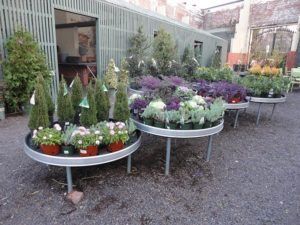

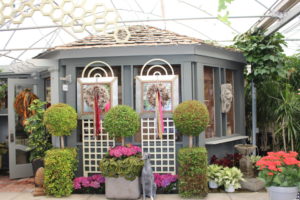
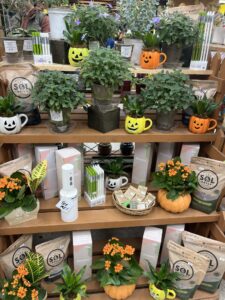
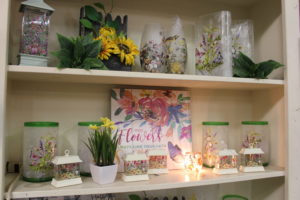



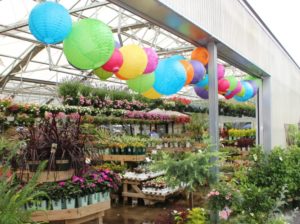


 Videos
Videos





